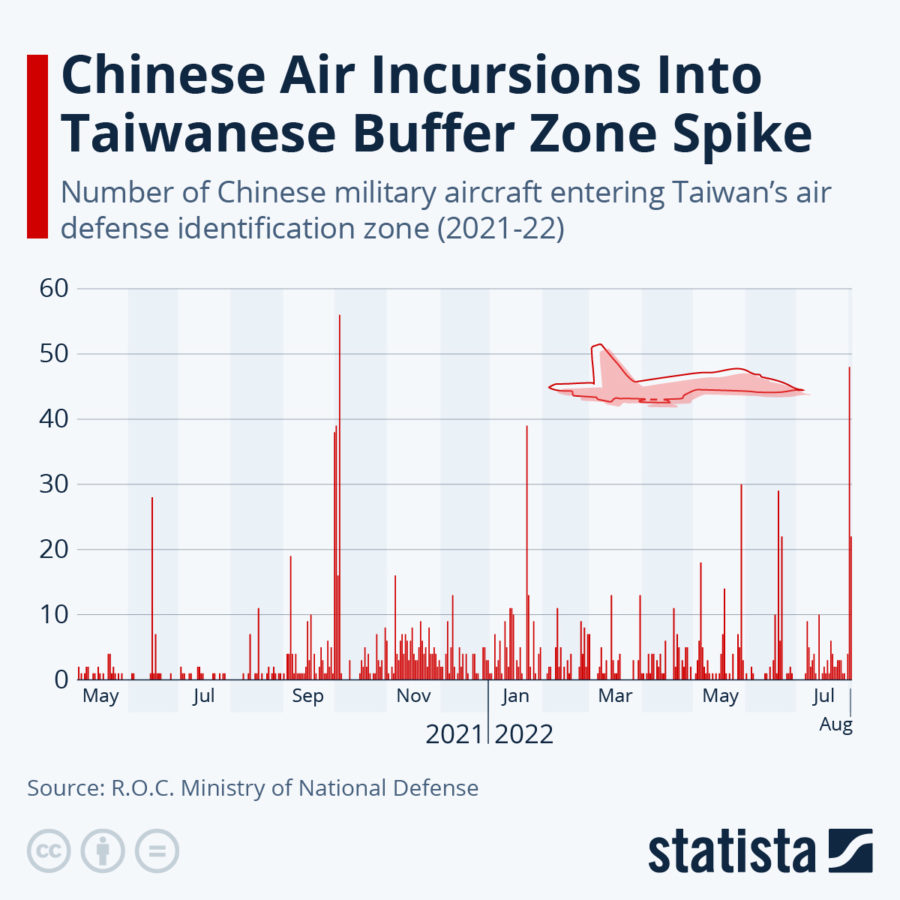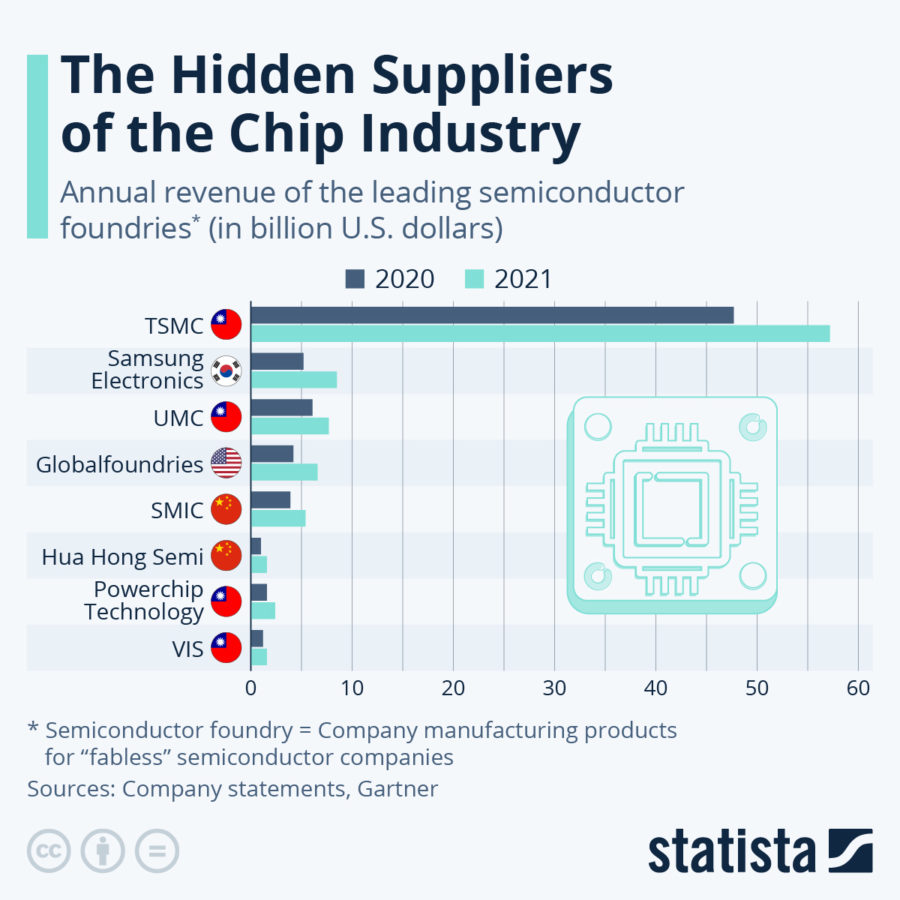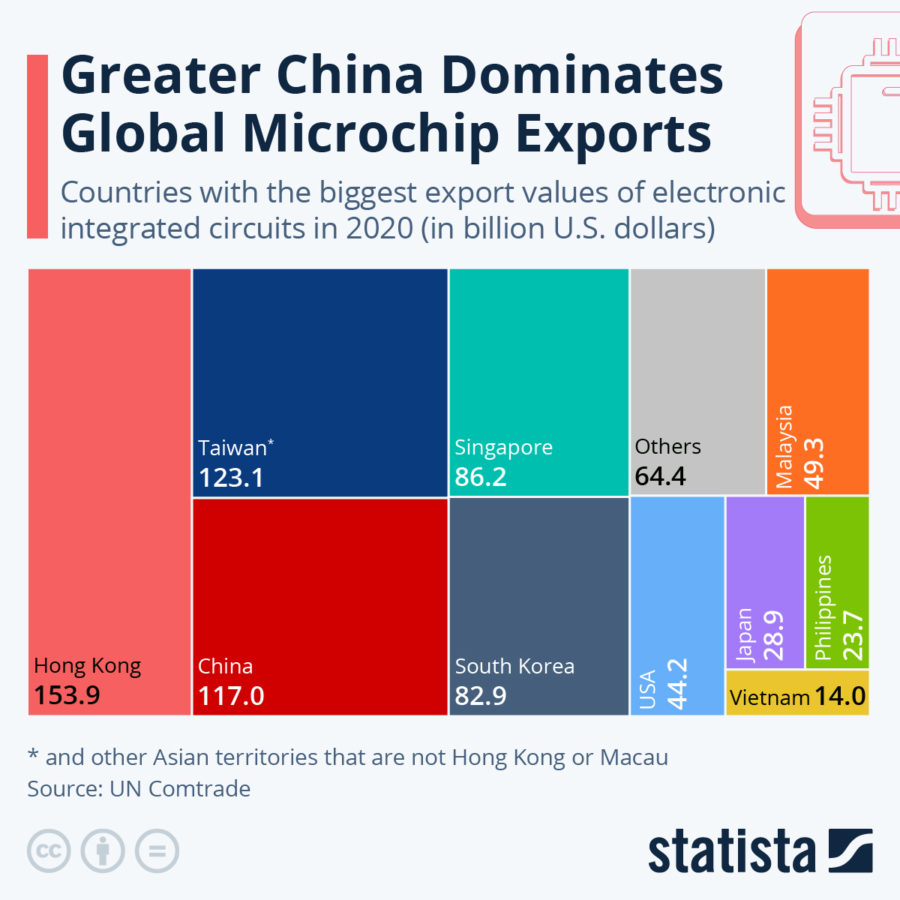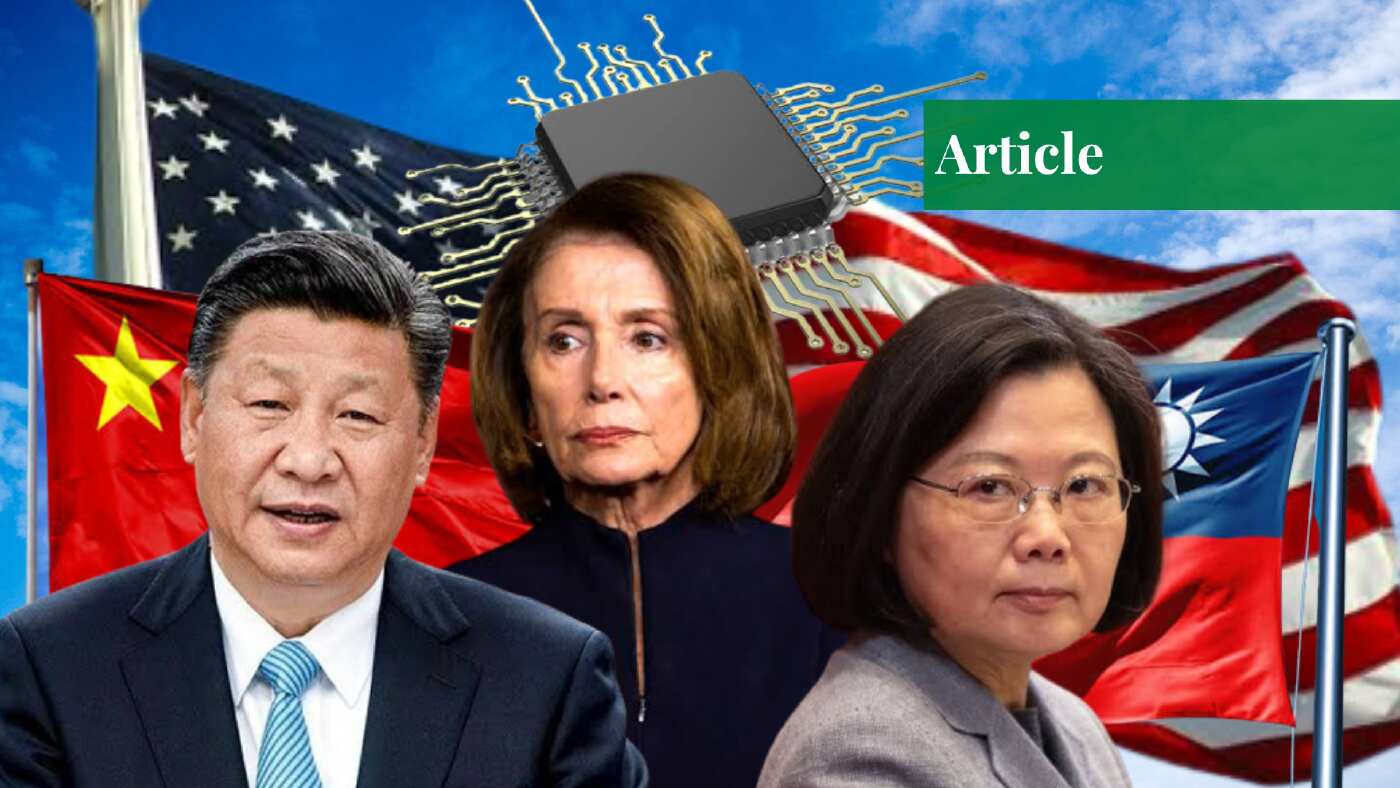On 26th February 2022, Russian forces attacked Ukraine. This event is seen as a turning point in global politics. The Russian invasion of Ukraine has left countries around the world in awe as no one had imagined that in the 21st century any country would invade another and violate its sovereignty. This, out of all other countries, has struck like a lightning bolt at a small island in the Global South—Taiwan.
Will the US Defend Taiwan?
At the heart of the conflict between China and Taiwan is the Chinese claim over Taiwan. China views it as its rebellious province that will one day reunite with the mainland. China has been closely observing the Ukraine and Russian crisis to see how far the West and, specifically, the US will go to defend Ukraine as this can help China to think about its future actions related to Taiwan. Neither the US nor NATO has sent their armies to defend Ukraine, so, will the US come to save Taiwan in case of an attack?
Well according to history, in 1995, the US invited Taiwan’s President Lee to the US to deliver a lecture to a university. This made China react furiously by starting naval exercises of a massive level, generating a fear that China might take over Taiwan. Thus, to prevent the situation from getting worse, the US stationed its USS Independence aircraft carriers in the middle of the Taiwan Strait. This eventually compelled China to stop its naval exercises.
Fast-forward to 2021, China violated Taiwan’s identification airspace more than 900 times which made the US bring its aircraft carriers into the Taiwan Strait to maintain the balance of power. However, this time it failed to deter China as it further increased the violation so much so that the US troops had to move back to prevent escalation. This shows that in case of an invasion, the US will come to rescue Taiwan as stated by President Biden multiple times. But China is no longer that same weak country; in fact, it is one of the world’s top-notch naval powers that can give a tough time to the US. Therefore, the question remains, will China invade Taiwan?
The Prospect of a Chinese Invasion
Although the tensions between America and China over Taiwan have reached a new escalating point in wake of US Speaker Nancy Pelosi’s visit to Taiwan. The strategic, economic, and political losses that China might have to face in the case of failing to capture Taiwan are far greater than the benefits that it can reap from the invasion. Therefore, the direct invasion by China of Taiwan seems uncertain.
However, the escalating conflict between the US, China, and Taiwan poses a significant threat to the supply chain of the semiconductor industry and the global economy as Taiwan is the heart of the industry. President XI Jinping aims to make China great again and this dream cannot be completed without the reunification of Taiwan with mainland China.
The Chinese president, on multiple occasions, has categorically stated that the reunification will take place and China aims to do it by peaceful means, but this does not seem possible under the current rising hostilities between US and China. US aircraft and naval patrolling have increased over the years in the South China Sea. Besides this, the US is also providing military support to the Taiwan military to prepare for its defense against China.
In addition, Nancy Pelosi’s visit to Taiwan marks the first time since 1996 when a US official has visited the island. Nancy Pelosi stated, “America stands with Taiwan, our democratic partner, as it defends itself and its freedom.” According to the White House, the visit remains consistent with the one-China policy; however, China views it as the US’ attempt to shift away from the one-China policy. This has made China speed up its aggressive actions toward Taiwan.

China views this visit as an attack on its sovereignty where the US is supporting Taiwan’s independence. China has blocked Taiwan’s air space, it has stopped the import of many daily use products to Taiwan, the incursion of its fighter planes in Taiwan’s air space has increased, and China has also started missile drills in six sea zones near Taiwan.
Impact on the Semiconductor Industry
Viewing the accelerating tensions, the world is wondering if China’s aggression can push the world that is already suffering from energy, food, and economic crises to suffer a new challenge—the shortage of microchips around the world. In order to understand the co-relation of the cross-strait tensions and the semiconductor industry, it is pertinent to understand the significance Taiwan holds with respect to the production of microchips.
Although the US invented chips, Taiwan is the country that has taken up this crucial industry. The US’s share in the production of chips has reduced from 40% in the 1990s to 12% in 2020. Whereas, Taiwan produces state-of-the-art semiconductors and chips that are as small as 3 nanometers and are only produced here on this island. Taiwan constitutes 62% of the world’s semiconductor and chip industry and 92% of the most advanced chips around the world.
These chips are the main component of all types of technological gadgets from smartphones and laptops to military aircrafts and weapons. All of the manufacturing is done by the Taiwan Semiconductor Manufacturing Company (TSMC). This company, for years, has been guarding the blueprint for the perfect semiconductor chips. It is the only reason why today, Taiwan holds a greater significance on the world stage and to America and China.

Both states aim to increase their influence on the island so that they can maintain an upper hand on this industry which is also the oil of the 21st century. Major American companies like Google, Amazon, and Nvidia all rely on chips from Taiwan. Thus, it is evident the key position Taiwan holds due to the world’s dependence on microchips. In case any sort of destruction is caused to the TSMC plants the global economy that is already heading towards a recession will be forced down on its knees.
In the wake of the ongoing conflict, semiconductor chips are under serious challenges. The first and foremost challenge is the looming threat of the Chinese invasion of the island. Taiwan’s plain area is the one that faces China and so it is likely that a Chinese attack will impact that area. However, it includes a lot of risks as all of the TSMC plants manufacturing semiconductors are situated in this area. In case of an attack, there is a high possibility that these plants can be destroyed.
Since no other country is familiar with the secret method of producing these chips, these attacks will eventually cause a severe blow to the production of almost all types of technological gadgets produced around the world. The senior vice president for China and technology policy at Albright Stonebridge Group said that in case of an attack, “it would be hugely disruptive, and then the question would be how long it would take to restore and if it could be restored.”
In addition to this, China has increased its power shows in the areas surrounding Taiwan. Its missiles have even entered Japan’s economic zone; thus, if the escalation continues, it can lead to the breakout of accidental war due to the strategic alliances among the US, Taiwan, Japan, and other regional countries. This too can stop the trade of the key materials necessary for local semiconductor manufacturing among these countries. For example, China exports some of its components from the Netherlands as it is still not able to fully manufacture chips domestically.
In such a situation where an all-out war breaks out, the production of microchips will not only stop in Taiwan but also in the US, China, and other regional countries. China contributes around 15% to the global chip industry and US and EU countries combined contribute around 15%. Since the world is currently suffering from an energy crisis in the wake of the Russia-Ukraine war, the next in line can be the shortage of microchips. The world is in no position to absorb such shocks.
A New Race
Moreover, the growing dependence of the countries on Taiwan for microchips and the constant fear of war breaking out has instilled a security dilemma among the nations. Thus, the countries are now aiming to become self-sufficient in the local manufacturing of microchips. China, under its Made in China 2025 and dual circulation policies aims to insulate its economy from the constant trade war and become self-reliant in the manufacturing of technology.
It has further pledged to invest $150 billion to expand its semiconductor manufacturing. Last year, local manufacturing in China grew by 33%. In order to counter this act and to reduce dependence on Taiwan, the US has also passed the CHIPS and Science Act which will set $52 billion for the manufacturing of microchips.

According to President Biden, the legislation will help America win the economic competition in the 21st century; he also reiterated the fact that the US’s dependence on Taiwan is unsafe. Besides this, the EU is also working on its capacity to increase its share of global production of microchips from 10% to 20% by 2030. Although these initiatives will, in the future, help these countries diversify their supply chain and reduce their dependence on Taiwan, they will increase the race among these states to dominate the semiconductor industry.
This ongoing zero-sum game will eventually increase multiple folds in the near future. US and China can enter into a further escalated trade war. The US can never allow China to increase its capacity in any field, let alone the field of tech. The US aims to keep its competitive edge not just economically but also militarily; therefore, the US will increase its containment policies against China.
The US is already trying to contain China’s rise in the manufacturing of microchips through bans on the sales of chip-making essentials. This can impact the shipment of machinery to produce 14nm chips in China. South Korea, an ally of the US, has also threatened to cut off chip supply to China. These actions will in return decouple the two large economies and further add fuel to the deglobalization trend in the world.
UN Secretary-General António Guterres said, “I fear the world is creeping towards two different sets of economic, trade, financial, and technological rule.” The separation of semiconductor industries will serve as the last nail in the coffin before the world segregates into two distinct systems. In the race to gain control over the semiconductor industry, Taiwan is, unfortunately, going to become the center of US-China rivalry due to its central position in this industry.
China is known for its replicating and copying of technology. According to the US, China has used multiple tactics historically to replicate US technology and it fears that China will do the same to get its hands on the Taiwan chip technology. According to an article in Foreign Affairs, China is likely to use its economic leverage, talent recruitment, and cyber-attacks on key companies to obtain semiconductor intellectual property to help its local industry bolster. This can not only cause a serious challenge to Taiwan’s national security but it can also challenge its hegemony in the semiconductor industry.
Shortage of Microchips: A Possible Future
The current ongoing cold war and the race to become the leader in the semiconductor industry are pushing the world toward a dystopic future. The 21st century is all about technology and advanced gadgets that cannot function without these chips. However, there is a likelihood of a shortage of microchips in the world as the two superpowers are trying to contain each other’s role, while the manufacturing plants in Taiwan are under severe threat.
In a CNN interview, the TSMC called it a lose-lose situation for the world. In this situation of shortage, the prices of mobile phones and laptops are going to spike. Besides this, industrialization will also face a severe blow since, amid the ongoing shortage, industries like steel and soap are already undergoing economic constraints. In addition to this, the military equipment made around the world will also suffer as autonomous tanks, drones, and aircrafts all function on these chips. This situation can bring along implications that will prove to be a turning point for the world.
Conclusion
In the end, with each passing day, the geopolitical conflict between the US and China is escalating and it is catching up with the smaller countries and regions in this crossfire. Taiwan is an example of this phenomenon; however, this island, which might seem small and insignificant, holds the ability to bring the world down to its knees and pull the world back from its pace of technological advancement.
Taiwan is the powerhouse of the semiconductor industry and currently, it has the absolute monopoly over the most advanced nanochips produced in the world. However, the US-China zero-sum game, the decoupling of the two states’ economies, and the constant fear of China invading Taiwan have generated the fear of the destruction of chip manufacturing in the world, which can cause the international community to suffer economically as well as militarily.
This is not the time to get involved in confrontational politics as globalization has integrated the fate of all countries. Hence, a loss for one will be a loss for all. Thus, the international society needs to put the common interest of states before their national interests—a prerequisite to actually fulfilling their national interests.
If you want to submit your articles and/or research papers, please check the Submissions page.
The views and opinions expressed in this article/paper are the author’s own and do not necessarily reflect the editorial position of Paradigm Shift.



















